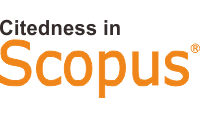Contributions and Sources of State Finance Perspective of Imam Abu Hasan Al-Mawardi
DOI:
https://doi.org/10.31943/afkarjournal.v6i3.716Keywords:
Contribution, Financial Resources, Abu Hasan Al-MawardiAbstract
State financial resources are regulastively regulated in Law Number 17 of 2003, concerning State Finance, namely State Finance is managed in an orderly manner, obedient to laws and regulations, efficient, economical, effective, transparent and responsible with due regard to a sense of justice and propriety. State revenue is the right of the Government which is recognized as an increase in the value of net assets generated from tax revenue, non-tax state revenue and grant revenue. The source of State finances according to Imam Al-Mawardi, asserts that the main source of State finances that must be managed properly and correctly in order to provide optimal results for the welfare of society and as a support for the course of government activities in a country. Imam Al-Mawardi's thinking contributes to the idea that the source of income or state revenue according to Islam is Kharaj, according to the Indonesian Wikipedia Kharaj is an excise tax on land products imposed on non-Muslims, Kharaj is an agricultural land tax, but in this day and age kharaj can also be categorized from the results of Land and Building Taxes. In Al-Mawardi's Financial Governance follows the concept that has been taught by the Prophet Saw. discussed in his book "Al-Ahkam As-sulthaniyyah" is the concept of Baitul Mal which is an institution that has the task of managing all the assets of the people in the form of sources of income and expenditure of state finances. Source of state revenue according to Imam Al-Mawardi is divided into 5, namely: 1) Zakat; 2) Ghanimah; 3) Fay; 4) Kharaj; and 5) Jizyah. The source of expenditure according to Al-Mawardi allocated to fakir, poor, ibnu sabil, fisabililah, mujahidin (soldiers), the whole community (depending on state priorities). Characteristic of Al-Mawardi's thoughts on state finances is that Al-Mawardi explains state finances in detail and systematically. Al-Mawardi allows borrowing state cash from other posts if the state treasury is insufficient for operations. Al-Mawardi explained that the management of state finances and religion is very important because Islamic financial management is an obligation of a state and the right of the people, so that government policies for economic improvement and welfare improvement through fair distribution mechanisms.
Downloads
References
Al Mawardi, Abu Hasan. 2014. Ahkam Sulthaniyah: Sistem Pemerintahan Khalifah Islam/Imam Al-Mawardi: penerjemah Khalifurrahman Fath & Fathurrahman. Jakarta: Qisthi Press.
--------, 1995, Adab al-Dunya wa ad-Din, Beirut: Dar al-Fikr.
Azhary, Muhammad Tahir, 2007, Negara Hukum; Suatu Studi Tentang Prinsip- Prinsipnya Dilihat dari Segi Hukum Islam, Implementasinya pada Periode Negara Madinah dan Masa Kini, Jakarta: Kencana.
Azmi, Sabahuddin, 2005, Islamic Economics; Public Finance in Early Islamic Thought, Terj. Widyawati, Menimbang Ekonomi Islam; Keuangan Publik, Konsep Perpajakan dan Peran Bait al-Mal, Bandung: Nuansa.
Ash-Shiddieqy, Hashbi. 1969. Asas-Asas Hukum Tata Negara Menurut Syari’at Islam. Yogyakarta: Matahari Masa.
Hawwa, Sa’id, 2002, al-Islam,terj. Fakhruddin Nur Syam dan Muhil Dhofir, al- IslamJilid 2, Jakarta: al-I’tishom Cahaya Umat.
Iqbal, Muhammad dan Amin Husein Nasution. 2010. Pemikiran Politik Islam Dari Masa Klasik Hingga Indonesia Kontemporer. Jakarta: Kencana Prenada Group.
Ichtiar, Baru Van Hoeve, 1996, EnsiklopediHukum Islam Volume 1, Jakarta: IchtiarBaru Van Hoeve.
, 1996, Ensiklopedi Hukum Islam Volume 6, Jakarta: Ichtiar Baru Van Hoeve.
Karim, AdiwarmanAzwar, 2014, SejarahPemikiran Ekonomi Islam, Jakarta: Rajawali Press.
Nata, Abuddin, 2001, Pemikiran Para Tokoh Pendidikan Islam, Jakarta: Raja Grafindo Persada.
Soleh, A. Khudori (ed), 2003 Pemikiran Islam Kontemporer, Yogyakarta: Jendela.
Syadzali, Munawir. 1990. Islam dan Tata Negara: Ajaran, Sejarah dan Pemikiran. Jakarta: UI-Press.
Zulkadri. 2018. Keuangan Publik Perspektif Imam Al-Mawardi Dalam Kitab Al-Ahkam As- Sultaniyyah Wa Al-Wilayat Ad-Diniyah. Jurnal Ekonomi dan Perbankan Islam Vol. 1, No. 2.
Downloads
Published
How to Cite
Issue
Section
License
Copyright (c) 2023 Jajang Herawan, Yadi Janwari, Ahmad Hasan Ridwan

This work is licensed under a Creative Commons Attribution 4.0 International License.




















